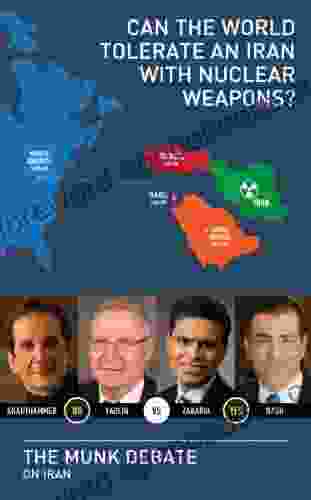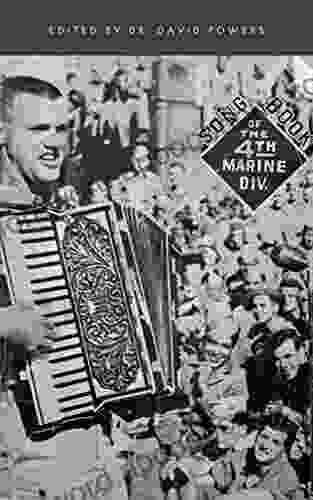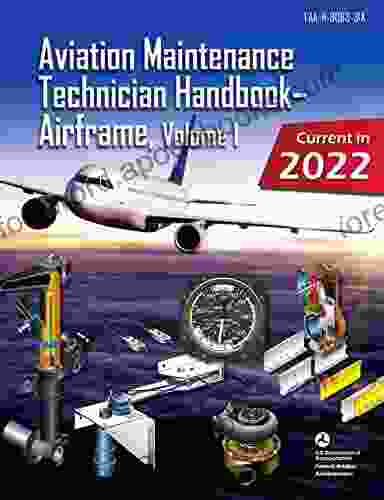The Third Generation Of Militant Mechanical Men: A Comprehensive Exploration

As technology continues to advance at an unprecedented pace, the boundaries between humans and machines blur. Nowhere is this more evident than in the realm of warfare, where militant mechanical men have emerged as a transformative force.
4.3 out of 5
| Language | : | English |
| File size | : | 653 KB |
| Text-to-Speech | : | Enabled |
| Screen Reader | : | Supported |
| Enhanced typesetting | : | Enabled |
| Word Wise | : | Enabled |
| Print length | : | 6 pages |
The third generation of militant mechanical men represents a significant leap in both technological sophistication and combat effectiveness. These machines are not mere extensions of human soldiers; they are autonomous, intelligent entities capable of making complex decisions and carrying out sophisticated maneuvers on the battlefield.
In this article, we will explore the origins, evolution, and profound impact of third-generation militant mechanical men on warfare and society. We will examine their capabilities, limitations, and the ethical implications of their use.
Origins and Evolution
The origins of militant mechanical men can be traced back to the early 20th century, when remote-controlled tanks and aircraft were first developed. However, it was not until the advent of computers and artificial intelligence (AI) in the mid-20th century that these machines truly began to come into their own.
The first generation of militant mechanical men were essentially unmanned vehicles controlled by human operators from a safe distance. These machines were used primarily for reconnaissance and surveillance, but they also saw limited combat use in the Vietnam War.
The second generation of militant mechanical men emerged in the late 20th century and early 21st century. These machines were more autonomous than their predecessors, and they were capable of carrying out a wider range of tasks on the battlefield. However, they were still limited by their reliance on human input for decision-making.
The third generation of militant mechanical men represents a quantum leap in autonomy and intelligence. These machines are capable of making complex decisions on their own, and they can adapt to changing battlefield conditions in real time. They are also equipped with a variety of advanced sensors and weapons, making them formidable opponents in combat.
Capabilities and Limitations
Third-generation militant mechanical men possess a wide range of capabilities that make them ideal for combat operations. These capabilities include:
- Autonomy: Third-generation militant mechanical men are capable of making complex decisions on their own, without human input.
- Intelligence: These machines are equipped with advanced artificial intelligence (AI) that allows them to learn from experience and adapt to changing battlefield conditions.
- Mobility: Third-generation militant mechanical men are highly mobile, and they can traverse difficult terrain with ease.
- Firepower: These machines are equipped with a variety of advanced weapons, including machine guns, missiles, and lasers.
- Sensors: Third-generation militant mechanical men are equipped with a variety of sensors, including cameras, radar, and infrared sensors. This allows them to detect and track targets in all weather conditions and at long ranges.
Despite their impressive capabilities, third-generation militant mechanical men also have some limitations. These limitations include:
- Cost: Third-generation militant mechanical men are very expensive to develop and produce.
- Complexity: These machines are extremely complex, and they require a high level of maintenance and training to operate.
- Vulnerability: Third-generation militant mechanical men can be vulnerable to hacking and other forms of cyberattacks.
Impact on Warfare
The of third-generation militant mechanical men has had a profound impact on warfare. These machines have the potential to revolutionize the way wars are fought, and they could lead to a new era of conflict that is both more deadly and more efficient.
One of the most significant impacts of third-generation militant mechanical men is their ability to operate autonomously. This means that these machines can be deployed on the battlefield without the need for human input. This can free up human soldiers to focus on other tasks, such as planning and coordinating operations.
Another major impact of third-generation militant mechanical men is their increased intelligence. These machines are capable of learning from experience and adapting to changing battlefield conditions. This makes them more effective in combat, and it could lead to new tactics and strategies that are not possible with human soldiers.
In addition to their tactical advantages, third-generation militant mechanical men also have the potential to make warfare more efficient. These machines are capable of operating 24 hours a day, 7 days a week, and they do not require rest or food. This could lead to a significant increase in the tempo of warfare, and it could make it more difficult for adversaries to mount an effective defense.
Ethical Implications
The use of third-generation militant mechanical men raises a number of ethical concerns. One of the most pressing concerns is the potential for these machines to be used to commit war crimes. Without human oversight, these machines could be programmed to target civilians or to use excessive force.
Another ethical concern is the potential for third-generation militant mechanical men to be used to create autonomous weapons systems. These weapons systems would be capable of making life-and-death decisions without human input. This could lead to a situation where machines are making decisions about who lives and who dies, and it could erode the value of human life.
It is important to note that these ethical concerns are not hypothetical. In 2016, the United States military released a report on the ethical implications of autonomous weapons systems. The report concluded that these weapons systems could pose a significant threat to human rights and the rule of law.
The third generation of militant mechanical men represents a major advance in technology and a significant challenge to our ethical values. These machines have the potential to revolutionize warfare and to make the world a more dangerous place. It is important to be aware of the capabilities and limitations of these machines, and to carefully consider the ethical implications of their use before they are deployed on the battlefield.
4.3 out of 5
| Language | : | English |
| File size | : | 653 KB |
| Text-to-Speech | : | Enabled |
| Screen Reader | : | Supported |
| Enhanced typesetting | : | Enabled |
| Word Wise | : | Enabled |
| Print length | : | 6 pages |
Do you want to contribute by writing guest posts on this blog?
Please contact us and send us a resume of previous articles that you have written.
 Book
Book Novel
Novel Page
Page Chapter
Chapter Text
Text Story
Story Genre
Genre Reader
Reader Library
Library Paperback
Paperback E-book
E-book Magazine
Magazine Newspaper
Newspaper Paragraph
Paragraph Sentence
Sentence Bookmark
Bookmark Shelf
Shelf Glossary
Glossary Bibliography
Bibliography Foreword
Foreword Preface
Preface Synopsis
Synopsis Annotation
Annotation Footnote
Footnote Manuscript
Manuscript Scroll
Scroll Codex
Codex Tome
Tome Bestseller
Bestseller Classics
Classics Library card
Library card Narrative
Narrative Biography
Biography Autobiography
Autobiography Memoir
Memoir Reference
Reference Encyclopedia
Encyclopedia John Keegan
John Keegan Phyllis Hunter
Phyllis Hunter David Pham
David Pham Rosanne Welch
Rosanne Welch Sam Sagmiller
Sam Sagmiller J A Santana
J A Santana Linda Killen
Linda Killen Michael Luis
Michael Luis David M Barrett
David M Barrett Orlando Wilson
Orlando Wilson Richard Blade
Richard Blade Sharon D Welch
Sharon D Welch Peter Economy
Peter Economy William Alexander Percy
William Alexander Percy Lynn Painter
Lynn Painter Kaci Rose
Kaci Rose J Bronson
J Bronson Ruth Freeman
Ruth Freeman David Mckee
David Mckee David Hyner
David Hyner
Light bulbAdvertise smarter! Our strategic ad space ensures maximum exposure. Reserve your spot today!

 George Bernard ShawClass 11 Chemistry Notes Toppers Notes: Unveil the Secrets of Academic...
George Bernard ShawClass 11 Chemistry Notes Toppers Notes: Unveil the Secrets of Academic... Miguel de CervantesFollow ·18.2k
Miguel de CervantesFollow ·18.2k Derek CookFollow ·10.9k
Derek CookFollow ·10.9k Harry HayesFollow ·15.8k
Harry HayesFollow ·15.8k Dean ButlerFollow ·15.4k
Dean ButlerFollow ·15.4k Chase SimmonsFollow ·10.6k
Chase SimmonsFollow ·10.6k Frank ButlerFollow ·7.6k
Frank ButlerFollow ·7.6k Max TurnerFollow ·7.1k
Max TurnerFollow ·7.1k Beau CarterFollow ·12.2k
Beau CarterFollow ·12.2k

 Douglas Powell
Douglas PowellEscape into a World of Sweet Love and Second Chances with...
Prepare yourself...

 Garrett Powell
Garrett PowellMaster Badminton: A Comprehensive Guide to the Thrilling...
Are you ready to step into the world of...

 Deacon Bell
Deacon BellTrailer Park Trickster: The Adam Binder Novels
Book 1: The...

 Oscar Bell
Oscar BellLeo: The Very Modern Taoiseach
Leo Varadkar's journey...
4.3 out of 5
| Language | : | English |
| File size | : | 653 KB |
| Text-to-Speech | : | Enabled |
| Screen Reader | : | Supported |
| Enhanced typesetting | : | Enabled |
| Word Wise | : | Enabled |
| Print length | : | 6 pages |














